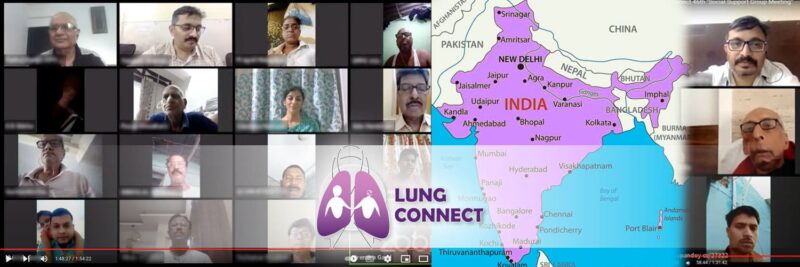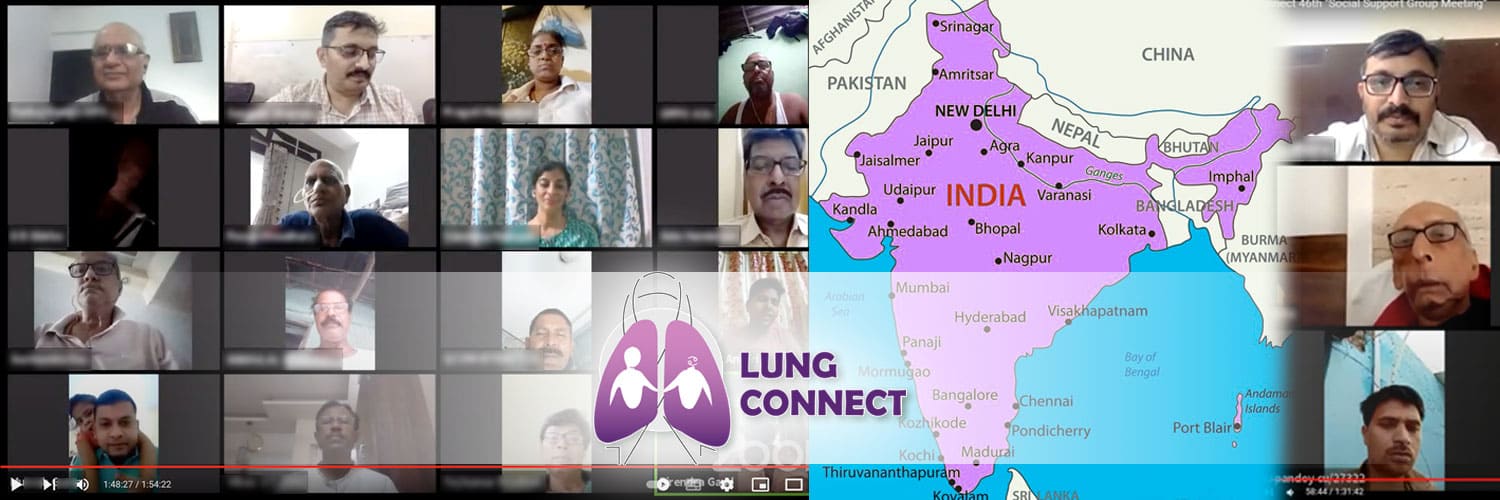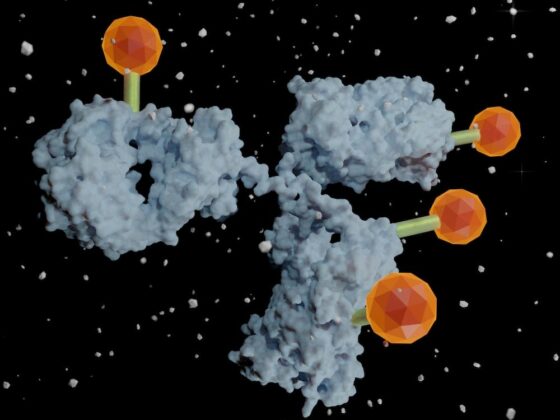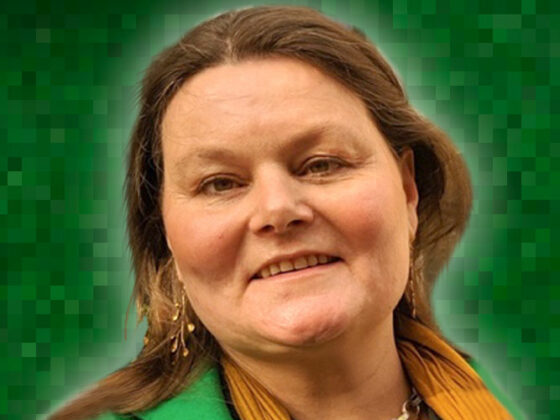It was April 2020. Just a few weeks earlier, India had imposed a national lockdown – among the harshest in the world. Ramkrishna Bhadhury, 44, a farmer from a small village in Nalikul, West Bengal, was feeling increasingly dejected and frustrated. A lung cancer patient since 2017, he had been on targeted therapy drugs. But suddenly he had no access to them.
Bhadury was being treated in Tata Memorial Hospital, Mumbai, India’s leading cancer treatment centre – around 2,000 kms away. He needed to visit the hospital every three months to receive subsidised treatment and medicines, but all that ended when Covid hit. When he tried to obtain medicine from pharmacies nearby, or even in Delhi, he was told to get a prescription from his oncologist. Yet Bhadury had no means of doing this. This is when Vandana Mahajan, a volunteer counsellor at Tata Memorial Hospital, came to his rescue.
She was in touch with Bhadury through the ‘Lung Connect’ project, the lung cancer support group created at Tata Memorial Hospital a few weeks into the pandemic. It allows lung cancer patients to interact together through Zoom calls, get accurate information, speak to the doctors and discuss difficult topics like death. Today, it has around 5,000 participants and this month [June] it holds its 50th session.
Vandana Mahajan arranged for a prescription from Bhadury’s oncologist, who contacted the pharmaceutical company and arranged for drugs. She then contacted India Post, the only courier service working at that time, to send the medicines to Bhadury. At last, he got access to the drugs that kept his cancer in check. “For us, Vandana mam is Godsend,” he told Cancerworld.
Lung cancer is among the most common cancers in India, and one of the leading causes of death in Indian men. Survival depends on early diagnosis, but most patients in India are diagnosed at stage 3 and 4. They often spend months seeking treatment from different doctors before being correctly diagnosed, and then may have to travel thousands of kilometres for treatment at one of India’s few tertiary-care cancer centres. Finding affordable housing near the centres, funding treatment, and often communicating in a different language, can all be difficult.
“They talk about side-effects of the drugs and what helps. This information is very powerful”
Patient resources like cancer support groups are rarely available in low-income countries such as India. That is why the Lung Connect initiative is so innovative.
The sessions are conducted twice a month in Hindi, the language understood by most patients. Patients read out their file numbers, the oncologist examines their disease history and current complaints, and then offers advice – often prescribing medicines to manage side effects or referring patients to local hospitals if symptoms are severe. This means patients do not have to rush all the way to Mumbai to address complications. “This saves the patient a lot of time and money, and also reduces the burden on us,” says Ajay Singh, Assistant Professor of Medical Oncology at Tata Memorial Hospital.
Lung Connect sessions usually also have a section where an oncologist or nutritionist gives information about how to cope with cancer and its side-effects. Time is often devoted to learning yoga, interacting with each other and singing songs.
At first, the aim was to help patients who couldn’t get to the hospital and ensure they had their medicines on time. “Now these sessions are giving lung patients hope as they see patients who are living with the disease for seven or eight years,” says Sanjeev Sharma, a patient advocate and Director of Lung Connect. “They talk about side-effects of the drugs and what helps. This information is very powerful.”
This is the first online platform in India where cancer patients and caregivers share information, according to Kumar Prabhash, Professor and Head of Medical Oncology at Tata Memorial Hospital.
“We tell each other that it’s a good thing we know about our diagnosis. Now that we are alive, we have to live well”
Mumbai resident Vikas Hawaldar, 54, never smoked or drank but was diagnosed with stage 4 lung cancer in January 2020. He joined the Lung Connect group through the WhatsApp group created by Tata Memorial counsellors. Soon, he started taking yoga sessions in the group and teaching lung exercises. He says it’s heartening to see patients from across the country, some joining the call from their beds. “We keep each other’s spirits up,” he says. “So many healthy people died during Covid. We tell each other that it’s a good thing we know about our diagnosis. Now that we are alive, we have to live well.”
The majority of lung cancer patients in the group are on palliative treatment. “I talk to them about the importance of pain relief and have connected many of them to local palliative care centres, and their sufferings have come down,” says Vandana Mahajan, a cancer survivor who is also a palliative care counsellor. Every two to three sessions she also broaches the topic of death. “Though we give them hope, it is important to be in touch with reality,” she says.
Enthused by positive feedback, the counsellors want the group to cater for lung cancer patients at other institutes as well. They are set to launch a website and a YouTube channel so that accurate information and resources are available to patients across the country.
“If this initiative proves successful, it could pave an innovative way to provide information to the patients in developing countries,” says Prabhash.












